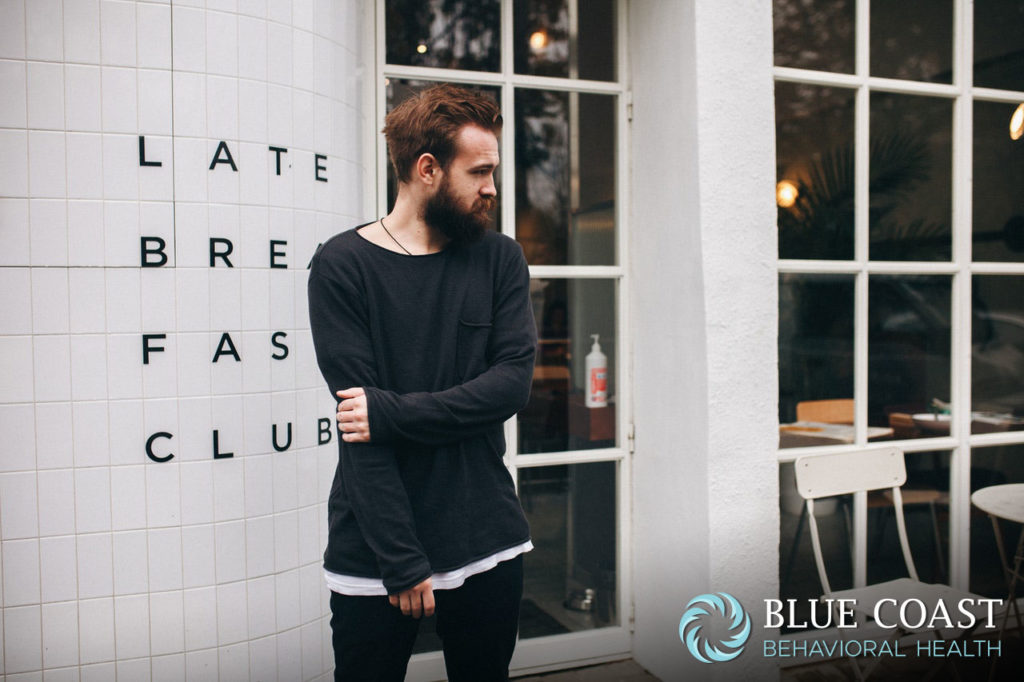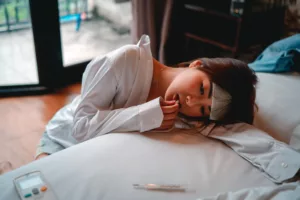While it is known that the isolation of quarantine itself led to rises in depression and relapse due to environmental causes, there is a direct physiological link between post-viral inflammation from COVID infection and mental illness. Early on in the COVID-19 pandemic, the Irish Journal of Psychological Medicine published an article that predicted a wave of post-COVID depression and behavioral disorders in 2021 (by post-COVID, researchers are referring to a period where we have reached general herd immunity through vaccination). The link has to do with how the nervous system responds to serious infection.
The Science Behind Post-COVID Depression
COVID-19 morbidity doesn’t just affect the respiratory system. It also affects the nervous system. When an individual has a viral infection, the body produces inflammation and decreased cellular immunity that makes the body produce neuromodulators. These can penetrate the brain when the blood-central nervous system barrier is compromised. In turn, these neuromodulators inhibit the brain’s neurotransmitters which can create feelings of depression.
A study from Oxford’s psychiatry department found that 13% of people who tested positive for COVID-19 are being diagnosed with their first psychological disorder (depression, anxiety, etc). This number jumps up to 33% in patients that were previously diagnosed with one. In addition, there’s has been a sharp rise in relapse and opioid overdose. According to this emergency CDC announcement, there were approximately 81,230 drug overdoses from June 2019-May 2020 which is the largest amount ever recorded in a 12-month period. The numbers continued to rise in 2020 and have yet to be recorded.
Environmental Stressors for Depression
It’s been well established that isolation leads to an increase of symptoms in people with clinical depression (major depressive disorder). Loneliness has surged with extended quarantine, and currently there is no clear-cut end in sight for those suffering with feeling alone. The vaccine has promised some hope, but for the next few months at least (possibly longer) we will continue to deal with an environment not conducive to managing clinical depression.
Though the environmental issues contributing to depression may drag out for a while longer, that does not mean depression also has to go on for longer. Since it is a chemical imbalance in the brain, there are medications and behavioral therapies that can treat post-viral depression successfully.
Post-Viral Depression Can be Treated


There are many factors currently working against people (such as post-viral changes and environmental stressors) that contribute to the likelihood of a depressive episode. But there is still hope. Treatment is considered an essential medical service and behavioral health clinics remain open to service those who are experiencing depression. The stressors of the pandemic haven’t changed those resources that are available.
There are two main approaches to treating clinical depression:
- Therapy: Cognitive Behavioral Therapy (CBT) offers a form of psychological treatment that has been demonstrated to be effective for several mental health issues, including depression. A mental health counselor helps the patient work through problematic thought patterns and gives them constructive tools to cope with life more effectively.
- Medication: Depression comes from a chemical imbalance in the brain. There are several classes of antidepressants that can help to treat symptoms of depression. These include selective serotonin re-uptake inhibitors (SSRIs), selective serotonin and norepinephrine re-uptake inhibitors (SNRIs), and monoamine oxidase inhibitors (MAOIs). A psychiatrist can help diagnose which antidepressant is best for each individual case.
- Medical Procedures: There is some evidence that electroconvulsive therapy (ECT) can have good outcomes in treating depression. There are also other procedures available, but it is recommended to try other approaches to treatment first.
Treating depression is highly individualized because each case is different. If you or a loved one is seeking help for depression or another behavioral health problem, our counselors are available 24/7 by phone: 714-203-2708




